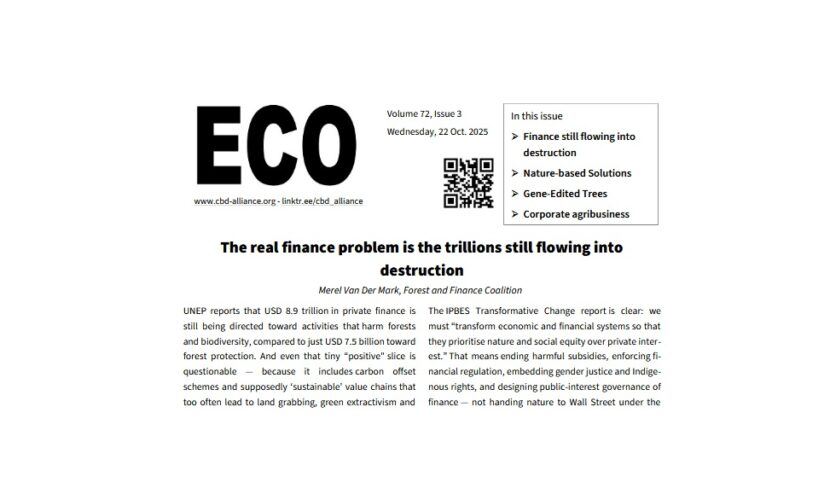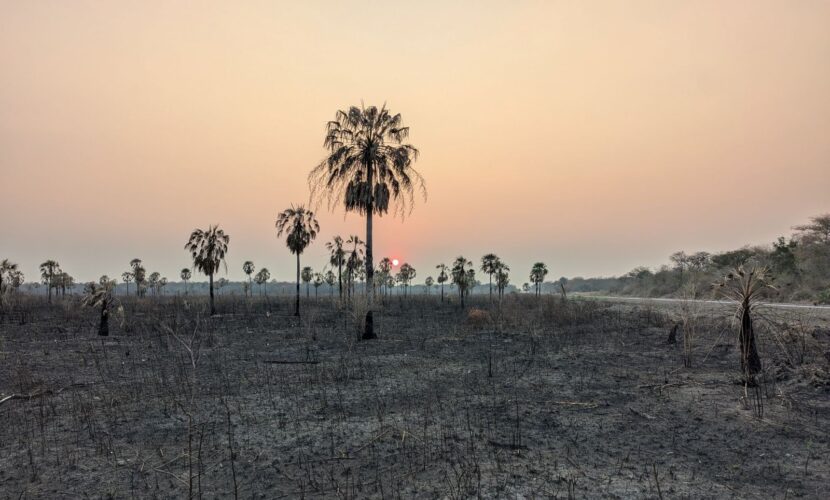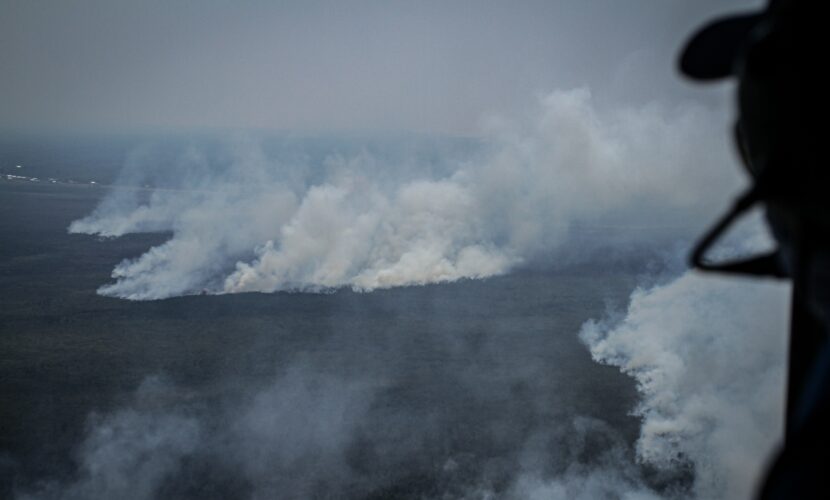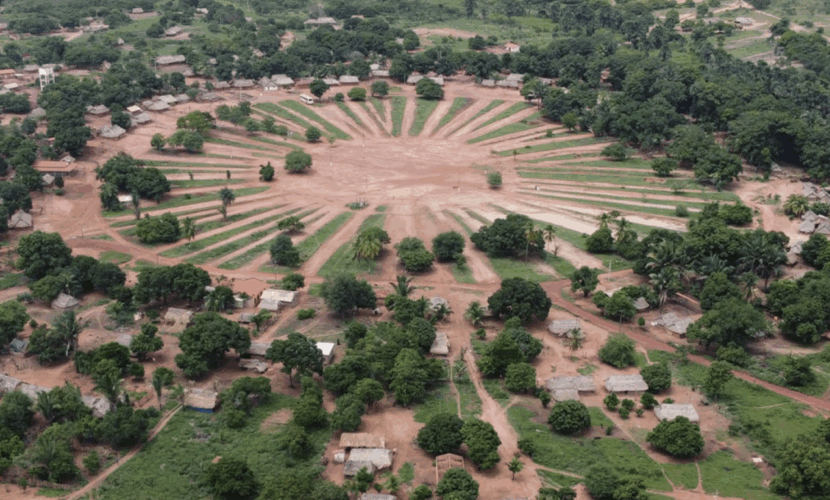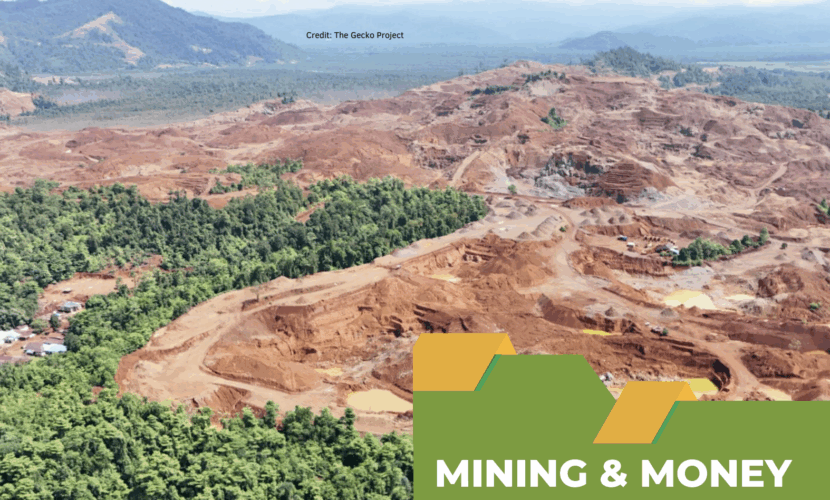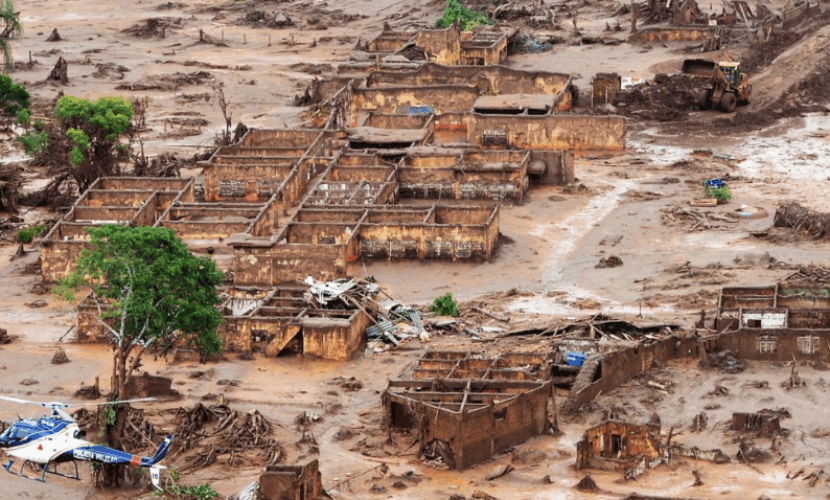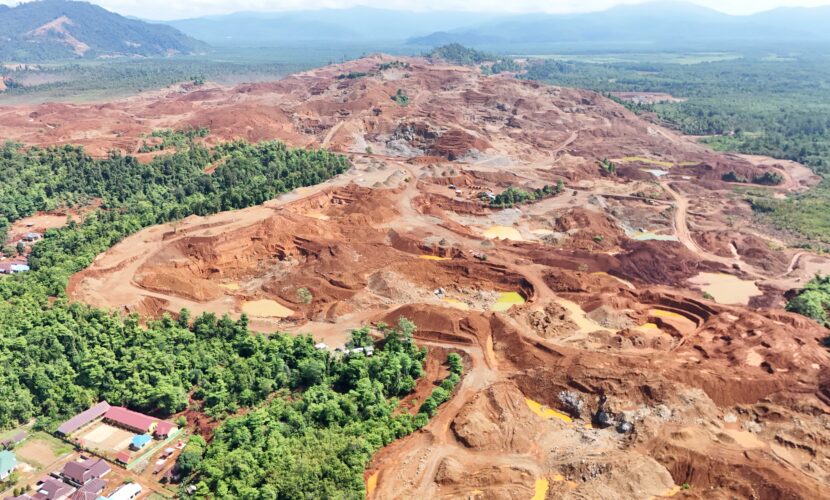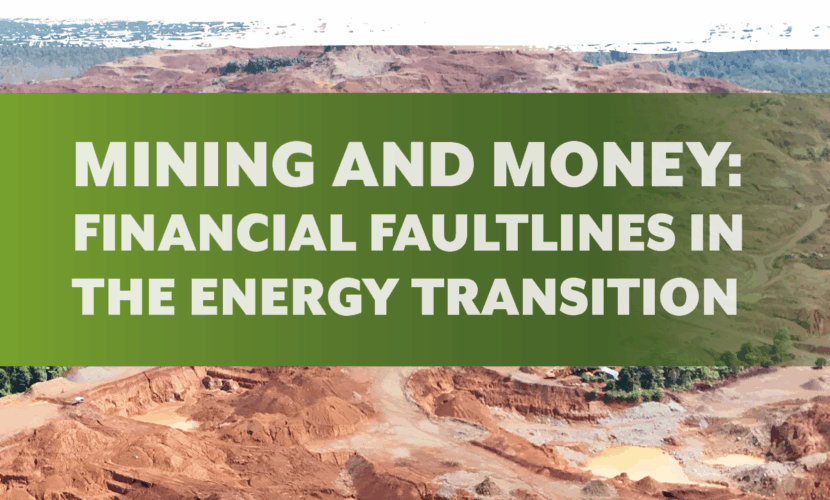News
Farmers change declared property area and ‘erase’ deforestation records
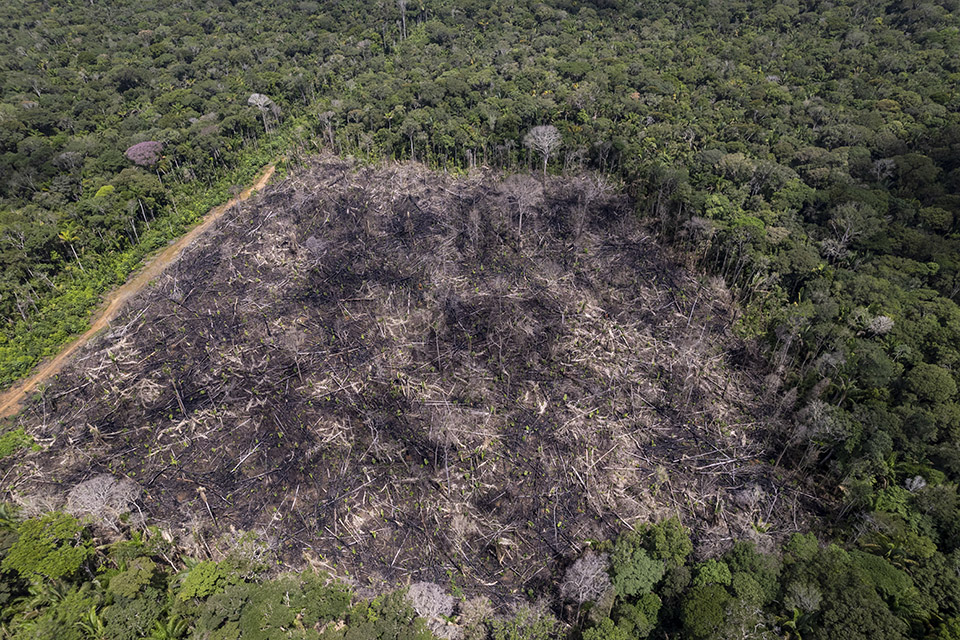
Originally published by Repórter Brasil
A study by the Center for Climate Crime Analysis (CCCA) identified the ‘disappearance’ of 4.9 million hectares overlapping with deforestation, environmental embargoes and protected areas, in the declared perimeter on private lands in the Amazon.
Land owners in the Legal Amazon have been changing the Rural Environmental Registry (CAR) of their properties and, as a result, eliminating records of environmental violations from the declared perimeter, such as embargoes by the Brazilian Institute of Environment and Renewable Natural Resources (IBAMA) and overlaps with Indigenous Lands. This is what a study by the Center for Climate Crime Analysis (CCCA) revealed, released today.
By “erasing” environmental irregularities on their farms on paper, owners also avoid restrictions on obtaining financing with public resources, since Central Bank rules prohibit the granting of credit to properties with embargoed areas or areas that overlap with Conservation Units (CUs). Between 2019 and 2024, the study mapped 14,223 properties in states in the Legal Amazon that modified their CAR records, removing areas with environmental restrictions. There are 9,621 cases of changes involving the exclusion of areas with deforestation, 4,358 cases of exclusion of embargoes, and 1,770 changes involving the exclusion of overlaps with protected areas. In total, there are 15,750 changes, since it is possible for the same property to have perimeter changes for more than one reason.
These changes resulted in the disappearance of 4.9 million acres of land that were previously listed within the perimeter of private properties in CAR records. The study even identified properties that, based on the location reported in CAR after changes made by their owners, were theoretically located within rivers (463 cases). “It makes no sense for the system to allow the registry to be moved to a location like this. These gaps must be identified and corrected,” says Heron Martins, coordinator of the CCCA geotechnology laboratory. “Users understand the logic behind these gaps and take action to benefit from them.”
These changes contribute to the irregular occupation of indigenous lands and are used by rural producers to circumvent environmental regulations, according to the CCCA study. The research was conducted with the support of Repórter Brasil, which provided the organization with information about its own CAR registration database. The study warns of the cascading impact of these changes on environmental control agencies, since a network of institutions uses CAR data to check for irregularities. This context ends up “undermining initiatives aimed at reducing deforestation and enforcing land protection,” the organization points out.
The changes impact the entire verification system, making it difficult to identify farms that commit environmental crimes. To map the cases, the CCCA cross-referenced CAR data from 2019 to 2024, deforestation data mapped by the Satellite Monitoring Project for Deforestation in the Legal Amazon (Prodes), embargoes on deforested areas applied by Ibama, and information on protected areas, referring to the official boundaries of conservation units and indigenous lands. Created in 2012 by the Forest Code, the CAR is a mandatory registry for rural properties, which centralizes environmental information on properties in an electronic system. The CAR is used by public and private agencies to verify environmental restrictions in the area, such as embargoes and deforestation, and to identify protected areas, reserves, and remnants. The declaration of property information is made by the owners themselves in the system, which offers the possibility of editing and rectifying data quickly and online, without justifications or documentation explaining the change. In 2023, according to the study, there were more than 7 million records in the National Rural Environmental Registry System (Sicar) throughout Brazil, with more than 1 million in the Legal Amazon.
Pará holds the record for CAR changes
Pará is the state with the highest number of CAR changes due to deforestation, followed by Rondônia, Mato Grosso and Acre.
In 2023, Pará was one of the states that deforested the most in Brazil, ranking fourth, behind Maranhão, Bahia and Tocantins, according to MapBiomas. 184.7 thousand hectares were lost in Pará. Agriculture was responsible for 93% of deforestation, also according to MapBiomas.
In addition to obtaining financing, the exclusion of environmental restrictions from the declared perimeter also helps with the sale of farm production. “Deforestation is an obstacle for meatpacking plants to buy. Owners can regularize the area or make an edit to the CAR. It is quick, there is no bureaucracy. They choose this option”, explains Martins.
Among the changes due to embargo, Pará and Rondônia “fight” for the top spot. Together, the two states represent 56% of the total number of cases.
Repórter Brasil asked the environmental departments of the states of Pará, Rondônia, Mato Grosso and Acre about monitoring changes to CARs.
The Pará Environmental Department reported that it “constantly analyzes CARs” and that it “has already canceled 2,374 registrations and suspended another 3,654 registrations registered on indigenous lands”. The Mato Grosso Environmental Department responded that “all information and changes entered are recorded in the system, which allows for data auditing” and that this procedure is done “at the time of analysis”, but did not say how many CAR changes were identified. The department also reported that, when changes are identified, it acts by “charging the interested party and the technical manager, forwarding them to the Public Prosecutor’s Office for civil and criminal proceedings, and to the Specialized Environmental Police Station, when there is evidence of a crime being committed or an investigation is needed to determine the materiality of the conduct”, but did not respond to how many situations were identified.
The departments of Rondônia and Acre had not sent their statements by the time this report was published. The space remains open for future statements.
Changes grow year after year
The assessment of the regularity of CAR registrations is carried out by the states, but the system is managed by the Ministry of the Environment and Climate Change. For Martins, the solution to correct the gaps must mobilize both spheres: “The entire validation process is carried out by the states, but the federal government aggregates and generates the tools. I am not aware of any monitoring or active process to search for this type of situation”, he points out.
The data shows that the practice has increased. According to the CCCA, the number of CAR changes has grown year after year. Between 2019 and 2020, 1,091 changes motivated by deforestation were identified. Between 2023 and 2024, the number rose to 2,682 changes. Martins warns that the practice is advancing in the Amazon.
“It is as if the news spreads. Who is offering the solution? In many cases, it is the technical managers”, Martins emphasizes. Repórter Brasil also asked the Ministry of Environment and Climate Change about monitoring changes to CARs and the operation of the digital system that integrates the registries, but the agency had not responded by the time this report was published. The space remains available for clarification.
For Martins, governments need to improve the CAR registration system, creating filters to block inappropriate situations such as changing an area into a river. He recommends implementing a tool that requires owners to justify – and document – changes to the registry.
“It is necessary to prioritize the analysis of cases that have already occurred and determine which of them should be canceled,” emphasizes Martins.
